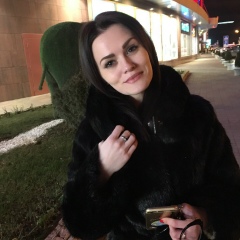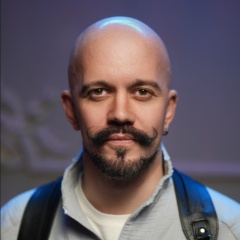Левин шел большими шагами по большой дороге, прислушиваясь не столько к своим мыслям (он не мог еще разобрать их), сколько к душевному состоянию, прежде никогда им не испытанному.
Слова, сказанные мужиком, произвели в его душе действие электрической искры, вдруг преобразившейи сплотившей в одно целый рой разрозненных, бессильных отдельных мыслей,никогда не перестававших занимать его. Мысли эти незаметно для него самого занимали его и в то время, когда он говорил об отдаче земли.
Он чувствовал в своей душе что-то новое и с наслаждением ощупывал это новое, не зная еще, что это такое.
«Не для нужд своих жить, а для Бога. Для какого Бога? Для Бога. И что можно сказать бессмысленнее того, что он сказал? Он сказал, что не надо жить для своих нужд, то есть что не надо жить для того, что мы понимаем, к чему нас влечет, чего нам хочется, а надожить для чего-то непонятного, для Бога, которого никто ни понять, ни определить не может. И что же? Я не понял этих бессмысленных слов Федора? А поняв,усумнился в их справедливости? нашел их глупыми, неясными, неточными?
Нет, я понял его и совершенно так, как он понимает, понял вполне и яснее, чем я понимаю что-нибудь в жизни, и никогда в жизни не сомневался и не могу усумниться в этом. И не я один, а все, весь мир одно это вполне понимают и в одном этом не сомневаются и всегда согласны.
Федор говорит, что Кириллов, дворник, живет для брюха. Это понятно и разумно. Мы все, как разумные существа, не можем иначе жить, как для брюха. И вдруг тот же Федор говорит, что для брюха жить дурно, а надо жить для правды, для Бога, и я с намека понимаюего! И я и миллионы людей, живших века тому назад и живущих теперь, мужики,нищие духом и мудрецы, думавшие и писавшие об этом, своим неясным языком говорящие то же, — мы все согласны в этом одном: — для чего надо жить и что хорошо. Я со всеми людьми имею только одно твердое, несомненное и ясное знание, и знание это не может быть объяснено разумом — оно вне его и не имеет никаких причин и не может иметь никаких последствий.
Если добро имеет причину, оно уже не добро; если оно имеет последствие — награду, оно тоже не добро.Стало быть, добро вне цепи причин и следствий.
И его-то я знаю, и всемы знаем.
А я искал чудес, жалел, что не видал чуда, которое бы убедило меня. А вот оно чудо, единственно возможное, постоянно существующее, со всех сторон окружающее меня, и я не замечал его!
Какое же может быть чудо больше этого?
Слова, сказанные мужиком, произвели в его душе действие электрической искры, вдруг преобразившейи сплотившей в одно целый рой разрозненных, бессильных отдельных мыслей,никогда не перестававших занимать его. Мысли эти незаметно для него самого занимали его и в то время, когда он говорил об отдаче земли.
Он чувствовал в своей душе что-то новое и с наслаждением ощупывал это новое, не зная еще, что это такое.
«Не для нужд своих жить, а для Бога. Для какого Бога? Для Бога. И что можно сказать бессмысленнее того, что он сказал? Он сказал, что не надо жить для своих нужд, то есть что не надо жить для того, что мы понимаем, к чему нас влечет, чего нам хочется, а надожить для чего-то непонятного, для Бога, которого никто ни понять, ни определить не может. И что же? Я не понял этих бессмысленных слов Федора? А поняв,усумнился в их справедливости? нашел их глупыми, неясными, неточными?
Нет, я понял его и совершенно так, как он понимает, понял вполне и яснее, чем я понимаю что-нибудь в жизни, и никогда в жизни не сомневался и не могу усумниться в этом. И не я один, а все, весь мир одно это вполне понимают и в одном этом не сомневаются и всегда согласны.
Федор говорит, что Кириллов, дворник, живет для брюха. Это понятно и разумно. Мы все, как разумные существа, не можем иначе жить, как для брюха. И вдруг тот же Федор говорит, что для брюха жить дурно, а надо жить для правды, для Бога, и я с намека понимаюего! И я и миллионы людей, живших века тому назад и живущих теперь, мужики,нищие духом и мудрецы, думавшие и писавшие об этом, своим неясным языком говорящие то же, — мы все согласны в этом одном: — для чего надо жить и что хорошо. Я со всеми людьми имею только одно твердое, несомненное и ясное знание, и знание это не может быть объяснено разумом — оно вне его и не имеет никаких причин и не может иметь никаких последствий.
Если добро имеет причину, оно уже не добро; если оно имеет последствие — награду, оно тоже не добро.Стало быть, добро вне цепи причин и следствий.
И его-то я знаю, и всемы знаем.
А я искал чудес, жалел, что не видал чуда, которое бы убедило меня. А вот оно чудо, единственно возможное, постоянно существующее, со всех сторон окружающее меня, и я не замечал его!
Какое же может быть чудо больше этого?
Levin walked large steps along the high road, listening not so much to his thoughts (he could not make out them yet), but to his state of mind, which he had never before experienced.
The words spoken by the peasant produced the effect of an electric spark in his soul, which suddenly transformed and rallied into one whole swarm of disparate, powerless individual thoughts that never ceased to occupy him. These thoughts, imperceptibly for himself, occupied him even at the time when he was talking about giving land.
He felt something new in his soul and felt it with pleasure with pleasure, not knowing yet what it was.
“Not for his needs to live, but for God. For which god? For God. And what can be said meaningless than what he said? He said that we don’t have to live for our needs, that is, we don’t have to live for what we understand, what we are attracted to, what we want, and to live for something incomprehensible, for God whom no one understands, nor can not determine. And what? I did not understand these meaningless words of Fedor? And realizing, doubted their justice? Found them stupid, obscure, inaccurate?
No, I understood him and completely as he understands, understood completely and more clearly than I understand anything in life, and never in my life doubted and can not doubt it. And I am not alone, but everyone, the whole world fully understands this one and does not doubt it alone and always agree.
Fedor says that Kirillov, a janitor, lives for his belly. This is understandable and reasonable. We all, as sentient beings, cannot live otherwise than for the belly. And suddenly the same Fedor says that for a belly to live badly, but it is necessary to live for truth, for God, and I understand it from a hint! And I and millions of people who lived centuries ago and now live, men, poor in spirit and sages, who thought and wrote about it, who say the same thing in their obscure language - we all agree on this one: - why do we need to live and what is good . I with all people have only one solid, unquestionable and clear knowledge, and this knowledge cannot be explained by reason - it is outside of it and has no reasons and can have no consequences.
If good has a cause, it is no longer good; if it has a consequence - a reward, it is also not good. Therefore, good is outside the chain of causes and effects.
And I know him, and we all know.
And I was looking for miracles, I regretted that I had not seen a miracle that would convince me. And here it is a miracle, the only possible, constantly existing, surrounding me from all sides, and I did not notice it!
What miracle could be more than that?
The words spoken by the peasant produced the effect of an electric spark in his soul, which suddenly transformed and rallied into one whole swarm of disparate, powerless individual thoughts that never ceased to occupy him. These thoughts, imperceptibly for himself, occupied him even at the time when he was talking about giving land.
He felt something new in his soul and felt it with pleasure with pleasure, not knowing yet what it was.
“Not for his needs to live, but for God. For which god? For God. And what can be said meaningless than what he said? He said that we don’t have to live for our needs, that is, we don’t have to live for what we understand, what we are attracted to, what we want, and to live for something incomprehensible, for God whom no one understands, nor can not determine. And what? I did not understand these meaningless words of Fedor? And realizing, doubted their justice? Found them stupid, obscure, inaccurate?
No, I understood him and completely as he understands, understood completely and more clearly than I understand anything in life, and never in my life doubted and can not doubt it. And I am not alone, but everyone, the whole world fully understands this one and does not doubt it alone and always agree.
Fedor says that Kirillov, a janitor, lives for his belly. This is understandable and reasonable. We all, as sentient beings, cannot live otherwise than for the belly. And suddenly the same Fedor says that for a belly to live badly, but it is necessary to live for truth, for God, and I understand it from a hint! And I and millions of people who lived centuries ago and now live, men, poor in spirit and sages, who thought and wrote about it, who say the same thing in their obscure language - we all agree on this one: - why do we need to live and what is good . I with all people have only one solid, unquestionable and clear knowledge, and this knowledge cannot be explained by reason - it is outside of it and has no reasons and can have no consequences.
If good has a cause, it is no longer good; if it has a consequence - a reward, it is also not good. Therefore, good is outside the chain of causes and effects.
And I know him, and we all know.
And I was looking for miracles, I regretted that I had not seen a miracle that would convince me. And here it is a miracle, the only possible, constantly existing, surrounding me from all sides, and I did not notice it!
What miracle could be more than that?
У записи 2 лайков,
0 репостов.
0 репостов.
Эту запись оставил(а) на своей стене Сергей Гаврилов























